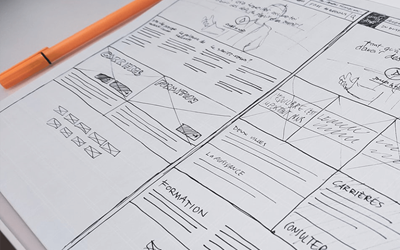Innovative Learning Solutions for Environmental Sustainability in a Net Carbon Zero Age
With COP26 - the conference on global climate change - on the horizon, there appears to be a general realisation that might be too late to reverse climate changes that have already taken place via the build-up of carbon dioxide (greenhouse gases) in the Earth’s upper atmosphere. So, adaptation – of business processes as well as lifestyle - is now key, along with taking drastic measures to limit any further adverse effects on the world’s climate.
Posted 18 October 2021
COP26 - hosted by the UK in partnership with Italy, being held in Glasgow, Scotland, from October 31 to November 12, aims to get agreement on four issues:
- Secure global net-zero carbon emissions by 2050 and keep within reach a global rise in average temperature of 1.5 degrees Celsius.
- Adapt to protect communities and natural habitats.
- Mobilise finance of at least $100bn in climate finance per year from developed countries and engaging international financial institutions, along with the private and public sectors, to make trillions of dollars available to secure global net zero.
- Work together to achieve these targets.
In the build-up to the conference, the UK Government has recognised that ‘securing a brighter future for our children and future generations requires countries to take urgent action at home and abroad to turn the tide on climate change.’ At present, the world is pledging some $80bn a year towards this goal – but there’s still a $20bn or so shortfall. While, in general, private sector firms are unlikely to have spare cash to volunteer to help meet this shortfall, many can be persuaded to contribute to this $20bn in kind.
This isn’t a new idea. Back in 1990, John Cleese, along with HRH Prince Charles, starred in a 25-minute film made by Video Arts – ‘Grime Goes Green: Your Business and the Environment’ - intended to raise awareness of climate change and promote a more responsible attitude from business.
One company that’s keen to play its part by contributing its extensive knowledge, skills, and expertise and, in turn, help others contribute – in cash or kind – by adapting and helping limit further climate changes is the digital learning and assessment specialist, eCom Scotland. Along with its sister company, eCom USA, this Dunfermline-based organisation is committed to minimising its carbon footprint and supporting those working to improve global environmental sustainability.
“Through providing our innovative learning solutions, we support the United Nations (UN)’s Sustainable Development Goals - in particular Goal 4, on quality education, and Goal 8, on decent work and economic growth,” explained eCom’s Managing Director, Wendy Edie. “This applies to our work with clients around the world.”
Currently, some 53% of eCom’s annual revenue is generated outside the UK, with a further eight percent coming from sales to organisations in England
“Environmental policy is very much at the forefront of our work,” Wendy continued. “Many of our customers are governmental departments, including the Scottish Environment Protection Agency (SEPA) - Scotland's principal environmental regulator, protecting and improving Scotland's environment. As part of SEPA’s supply chain, we’re required to share our policies and ensure we meet these at all times.
“Moreover, as a Microsoft Azure partner, we’ve taken many steps to ensure our code and hosting uses the least amount of electricity possible, while still ensuring reliability. Our Scottish headquarters uses fully renewable power and we aim to minimise our water usage in our buildings and vehicles. We’re also committed to using recycled or upcycled goods as well as environmentally safe cleaning products.”
Apart from making its operations as carbon neutral as possible, eCom recognises that to meet net-zero targets, the economy needs both a skills system and a labour market that are more agile, proactive, responsive, and resilient than ever before. Wendy commented, “An adaptive skills system is vital to maintaining the productive performance of economies and, through re-training people who’re at risk of loss of livelihoods, ensure a just and inclusive transition to a carbon-neutral economy.
“So, as digital learning and assessment specialists, we’re looking forward to playing a role - along with universities and colleges - in providing the learning materials, training, and assessments that employers need to facilitate the new generation of net zero-aligned technologies and business practices,” she added. “The magnitude and rate of change now required across all economic sectors to achieve net-zero demands a significant realignment and ramping up of ‘green’ skills and education provision.
“While there’s no single agreed definition of the ‘net zero skills’, ‘green skills’ or ‘climate emergency skills’ that will be in greater demand as world economies change to operating in a ‘greener’ way, we believe that higher order skills that support the development of additional skills and promote success in whatever context the future brings are timeless. So, we’re focusing on helping our clients develop these skills - helping learners embrace the coming changes to industry, job roles and society by, among other things, embedding life-long learning, problem solving capabilities, adaptability, and resilience.”
These skills can be grouped into the three broad categories of:
- self-management - focusing, integrity, adapting, initiative,
- social intelligence - communicating, feeling, collaborating, leading, and
- innovation - curiosity, creativity, sense-making, critical thinking.
“We believe that focusing on developing people skills in this way will help produce an agile workforce committed to quality-assessed lifelong learning which will be increasingly productive and resilient,” said Wendy.
Recent Posts
eCom Learning Solutions, with Partners British Council, BUILA, and UKCISA, a finalist in two prestigious categories at the PIEoneer Awards 2023!eCom Demonstrates Commitment to Diversity and Inclusion Through Ongoing Efforts
Enhanced Career Opportunities at eCom through RNIB’s Visibly Better Employer Quality Standard
A Mobile-First, Workforce Management Solution from eCom Learning Solutions
Seven Key Skills in Top Customers’ Wants List in 2022


